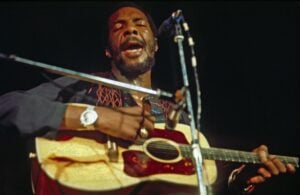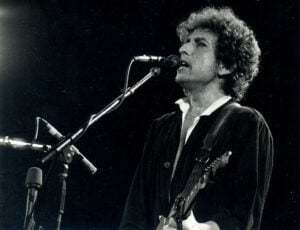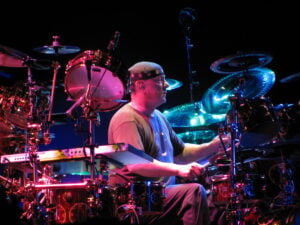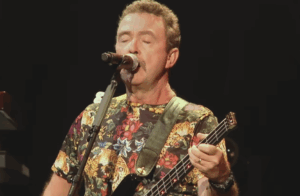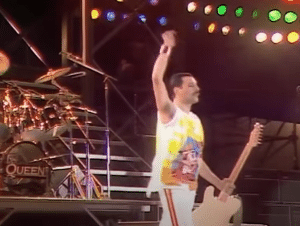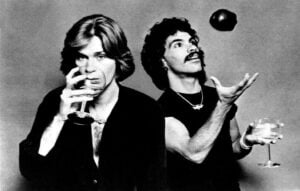7 Rock Songs That Tell Powerful Stories of War and Peace
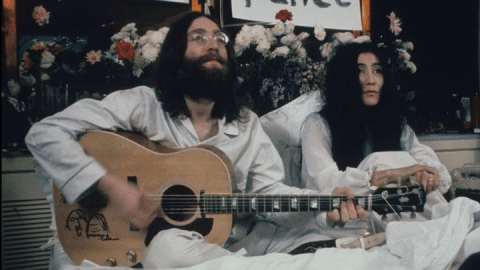
via Marcelo Campos / YouTube
Music has always been a powerful medium for storytelling, capturing the essence of human emotions and societal issues. Among the vast genres of music, rock songs often stand out for their impactful messages and raw energy. This collection of rock songs delves deep into the themes of war and peace, narrating stories that are both personal and universal, reflecting the complexities of conflict and the yearning for harmony.
“For What It’s Worth” by Buffalo Springfield
Though not explicitly about war, “For What It’s Worth” carries a profound message of vigilance and protest. Written amid the civil unrest of the 1960s, the song became emblematic of the era’s call for peace and resistance. Its lyrics, seemingly simple, offer a nuanced look into the atmosphere of doubt and the collective desire for change that defined the time. As people across the United States voiced their opposition to the Vietnam War, “For What It’s Worth” served as a soundtrack to their movement, capturing the essence of a generation in a quest for understanding and peace.
The song’s influence extends far beyond its initial release, becoming a timeless anthem for those who advocate for social justice. Its message of awareness and the push for a peaceful existence resonate as strongly today as they did during the tumultuous 1960s. The enduring relevance of “For What It’s Worth” demonstrates the power of music to encapsulate the spirit of its time while inspiring future generations to reflect on the core values of peace and solidarity among people.
“Sunday Bloody Sunday” by U2
“Sunday Bloody Sunday” stands as one of U2’s most potent and emotionally charged works, delving into the horror of the Bloody Sunday massacre in Northern Ireland. The song is a poignant commentary on the conflict, capturing the grief and outrage felt by many. Its lyrics do not shy away from depicting the brutality of the event, yet they also call for reconciliation and peace, making it a unique reflection on the capacity for healing and understanding in the aftermath of violence.
Through “Sunday Bloody Sunday,” U2 not only memorialized a dark day in history but also contributed to the greater dialogue about peace in times of conflict. The song’s ability to convey deep empathy while critiquing violence has made it an anthem for peace activists around the world. It showcases the band’s commitment to using their platform for social commentary, encouraging listeners to reconsider the costs of conflict and the ongoing need for dialogue and peace.
“Give Peace a Chance” by John Lennon
John Lennon’s “Give Peace a Chance” emerged as a defining song of the peace movement, encapsulating the yearning for global harmony amidst the Vietnam War. Its simple, repetitive chorus became a rallying cry, inviting listeners from all walks of life to join in a collective demand for peace. The song’s simplicity is its strength, making the message of non-violence and unity accessible to everyone, and fostering a sense of shared purpose among those who sing it.
The song did more than just preach to the choir; it became a symbol of hope and persistence in the face of adversity. Events where “Give Peace a Chance” was sung en masse demonstrated the powerful sense of community and common goal that music can inspire. Lennon’s vision for a peaceful world, where conflict is resolved through dialogue rather than violence, continues to inspire peace advocates and remains a central anthem for movements opposed to war.
“Blowin’ in the Wind” by Bob Dylan
Bob Dylan’s “Blowin’ in the Wind” uses poetic lyrics to explore profound questions about peace, freedom, and humanity. The song’s timeless appeal lies in its ability to prompt introspection and dialogue, rather than prescribing specific answers. Dylan masterfully crafts a narrative that encourages listeners to consider the various ways in which societal and personal changes can contribute to a more peaceful world.
“Blowin’ in the Wind” has transcended its era, becoming a universal call to action for those who seek justice and harmony. Dylan’s gentle yet powerful query about when humanity will live in peace continues to inspire and challenge. The song serves as a reminder that the answers to some of our most profound questions about coexistence and mutual respect might be closer than we think, perhaps just “blowin’ in the wind.”
“War Pigs” by Black Sabbath
In “War Pigs,” Black Sabbath confronts the grotesque nature of war and those who profit from it with unflinching clarity. The song’s heavy riffs and dark lyrics paint a vivid picture of the casualties of war – not just the soldiers on the front lines but also the countless innocent lives shattered by decisions made in far-off halls of power. “War Pigs” exposes the hypocrisy of warmongers, urging listeners to question the motives behind wars and the morality of those who stand to gain from them.
The significance of “War Pigs” in the context of the Vietnam War era and beyond lies in its raw portrayal of the consequences of conflict. Black Sabbath managed to encapsulate the disillusionment and anger towards the machinery of war, creating an anthem that resonates with those who have witnessed its horrors firsthand and those who advocate for peace. The song remains a powerful indictment of war and a call for accountability and change.
“Where Have All the Flowers Gone?” by Pete Seeger
Pete Seeger’s “Where Have All the Flowers Gone?” is a haunting reflection on the cyclical nature of war and its devastating effects on humanity. Its lyrical repetition serves as a poignant reminder of the senseless pattern of loss that accompanies conflict. The song’s simplicity belies its deep emotional impact, as it eloquently questions the logic of war and mourns the lost potential of its many victims.
Over the years, “Where Have All the Flowers Gone?” has been covered by numerous artists, each bringing their flavor to its timeless message. Its universal appeal lies in the fundamental human truths it explores – the value of life, the pain of loss, and the hope for a world without war. Seeger’s gentle yet powerful questioning continues to inspire listeners to reflect on their role in breaking the cycle of violence and to envision a more peaceful future.
“The Unknown Soldier” by The Doors
“The Unknown Soldier” by The Doors captures the sorrow and brutality of war while paying tribute to its anonymous victims. The song’s structure, alternating between reflective moments and bursts of intensity, mirrors the unpredictable and violent nature of warfare. Morrison’s emotional delivery conveys a deep sense of loss and the tragic reality of young lives cut short.
This track goes beyond mere protest; it is a solemn ode to those who have paid the ultimate price. The Doors’ evocative portrayal of a soldier’s fate forces listeners to confront the human cost of conflict, making “The Unknown Soldier” a powerful tribute to the fallen and a poignant critique of war’s senselessness. Its message is clear – the ultimate tragedy of war is not in its battles won or lost but in the irreversible loss of human life.












